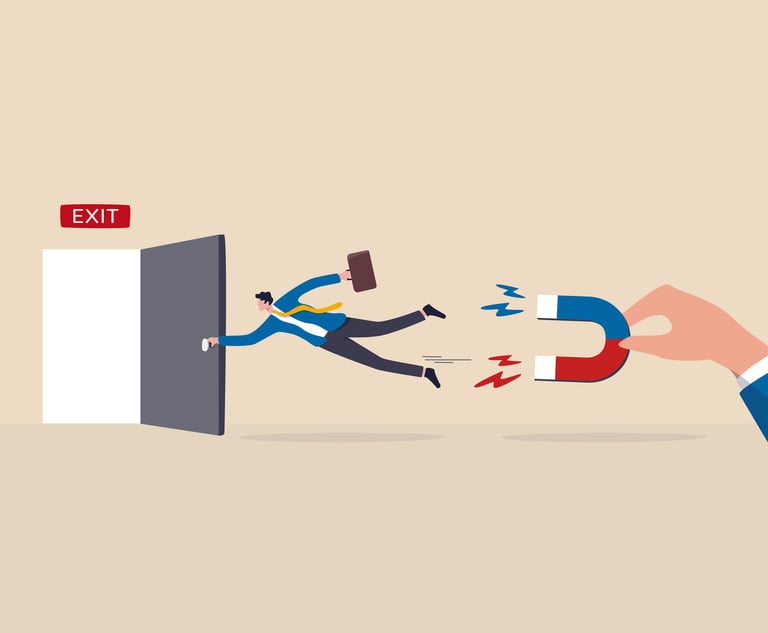Make Smart Decisions by Fighting Confirmation Bias
If you are reading this, you are probably an investigator. It may not be your job title, but if you are a lawyer, auditor, doctor, HR business partner, manager, executive, etc., a big part of your job is investigatory, requiring you to arrive at well-reasoned, fact-based, modern decisions, guidance or recommendations. You regularly make searching, systematic inquiries based on examination of relevant facts, data and information. How do you determine what is relevant when you investigate? It's likely that you unconsciously select or rely too heavily on information you already agree with and pay little or no attention to data that conflicts with your beliefs.
June 28, 2017 at 07:31 PM
14 minute read
If you are reading this, you are probably an investigator. It may not be your job title, but if you are a lawyer, auditor, doctor, HR business partner, manager, executive, etc., a big part of your job is investigatory, requiring you to arrive at well-reasoned, fact-based, modern decisions, guidance or recommendations. You regularly make searching, systematic inquiries based on examination of relevant facts, data and information. How do you determine what is relevant when you investigate? It's likely that you unconsciously select or rely too heavily on information you already agree with and pay little or no attention to data that conflicts with your beliefs.
If you want to make better decisions without being influenced by the subconscious biases that govern human behavior, it is important to be aware of a silent and insidious flaw in our thinking known as confirmation bias. It is an invisible hand guiding all decisions we make, often leading us astray by masquerading as reason. Confirmation bias “typically used in the psychological literature, connotes the seeking or interpreting of evidence in ways that are partial to existing beliefs, expectations or a hypothesis in hand” (“Confirmation Bias: A Ubiquitous Phenomenon in Many Guises” by Raymond S. Nickerson, University Review of General Psychology 1998, Vol. 2, No. 2).
I think of it as the Achilles heel of decision-making, imbuing us with vulnerability at the time when sound judgment is all that matters. It sneaks up and silently whispers “look here” and “don't look there” as you attempt to make a good choices.
This content has been archived. It is available through our partners, LexisNexis® and Bloomberg Law.
To view this content, please continue to their sites.
Not a Lexis Subscriber?
Subscribe Now
Not a Bloomberg Law Subscriber?
Subscribe Now
NOT FOR REPRINT
© 2024 ALM Global, LLC, All Rights Reserved. Request academic re-use from www.copyright.com. All other uses, submit a request to [email protected]. For more information visit Asset & Logo Licensing.
You Might Like
View All
People in the News—Dec. 17, 2024—Holland & Knight, Marshall Dennehey
4 minute read
Law Firms Are In a Strong Spot, But Their Continued 'Growth Mindset' Comes With Challenges
5 minute read

People in the News—Nov. 5, 2024—Pietragallo Gordon, Tucker Arensberg
3 minute readTrending Stories
- 1Call for Nominations: Elite Trial Lawyers 2025
- 2Senate Judiciary Dems Release Report on Supreme Court Ethics
- 3Senate Confirms Last 2 of Biden's California Judicial Nominees
- 4Morrison & Foerster Doles Out Year-End and Special Bonuses, Raises Base Compensation for Associates
- 5Tom Girardi to Surrender to Federal Authorities on Jan. 7
Who Got The Work
Michael G. Bongiorno, Andrew Scott Dulberg and Elizabeth E. Driscoll from Wilmer Cutler Pickering Hale and Dorr have stepped in to represent Symbotic Inc., an A.I.-enabled technology platform that focuses on increasing supply chain efficiency, and other defendants in a pending shareholder derivative lawsuit. The case, filed Oct. 2 in Massachusetts District Court by the Brown Law Firm on behalf of Stephen Austen, accuses certain officers and directors of misleading investors in regard to Symbotic's potential for margin growth by failing to disclose that the company was not equipped to timely deploy its systems or manage expenses through project delays. The case, assigned to U.S. District Judge Nathaniel M. Gorton, is 1:24-cv-12522, Austen v. Cohen et al.
Who Got The Work
Edmund Polubinski and Marie Killmond of Davis Polk & Wardwell have entered appearances for data platform software development company MongoDB and other defendants in a pending shareholder derivative lawsuit. The action, filed Oct. 7 in New York Southern District Court by the Brown Law Firm, accuses the company's directors and/or officers of falsely expressing confidence in the company’s restructuring of its sales incentive plan and downplaying the severity of decreases in its upfront commitments. The case is 1:24-cv-07594, Roy v. Ittycheria et al.
Who Got The Work
Amy O. Bruchs and Kurt F. Ellison of Michael Best & Friedrich have entered appearances for Epic Systems Corp. in a pending employment discrimination lawsuit. The suit was filed Sept. 7 in Wisconsin Western District Court by Levine Eisberner LLC and Siri & Glimstad on behalf of a project manager who claims that he was wrongfully terminated after applying for a religious exemption to the defendant's COVID-19 vaccine mandate. The case, assigned to U.S. Magistrate Judge Anita Marie Boor, is 3:24-cv-00630, Secker, Nathan v. Epic Systems Corporation.
Who Got The Work
David X. Sullivan, Thomas J. Finn and Gregory A. Hall from McCarter & English have entered appearances for Sunrun Installation Services in a pending civil rights lawsuit. The complaint was filed Sept. 4 in Connecticut District Court by attorney Robert M. Berke on behalf of former employee George Edward Steins, who was arrested and charged with employing an unregistered home improvement salesperson. The complaint alleges that had Sunrun informed the Connecticut Department of Consumer Protection that the plaintiff's employment had ended in 2017 and that he no longer held Sunrun's home improvement contractor license, he would not have been hit with charges, which were dismissed in May 2024. The case, assigned to U.S. District Judge Jeffrey A. Meyer, is 3:24-cv-01423, Steins v. Sunrun, Inc. et al.
Who Got The Work
Greenberg Traurig shareholder Joshua L. Raskin has entered an appearance for boohoo.com UK Ltd. in a pending patent infringement lawsuit. The suit, filed Sept. 3 in Texas Eastern District Court by Rozier Hardt McDonough on behalf of Alto Dynamics, asserts five patents related to an online shopping platform. The case, assigned to U.S. District Judge Rodney Gilstrap, is 2:24-cv-00719, Alto Dynamics, LLC v. boohoo.com UK Limited.
Featured Firms
Law Offices of Gary Martin Hays & Associates, P.C.
(470) 294-1674
Law Offices of Mark E. Salomone
(857) 444-6468
Smith & Hassler
(713) 739-1250





